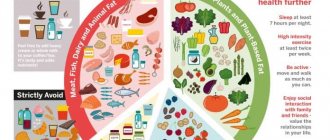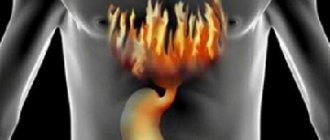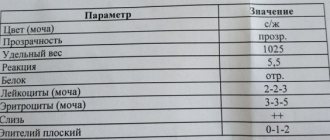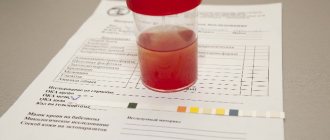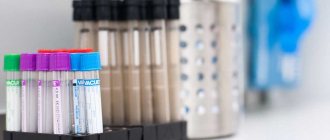What you need to know about cholesterol?
The content of the article
Cholesterol is a lipoprotein. Lipoprotein is a combination of fats and proteins. Most of the cholesterol (80%) is produced in the liver, 20% of it enters the body with food. A person needs no more than 300 mg of cholesterol per day.
Cholesterol performs several important functions:
- responsible for the formation of cell membranes, maintaining their strength and elasticity;
- participates in the production of bile by the liver;
- participates in the synthesis of vitamin D;
- participates in the synthesis of sex hormones;
- protects the nervous system;
- participates in metabolic processes.
Table of recommended and prohibited foods for high cholesterol
| Recommended | Limited | Forbidden |
| Fish and seafood | ||
|
Can be consumed no more than 2 times a week, boiled, in small portions of about 100 g. |
|
| Meat products | ||
They are introduced into the menu in portions of no more than 100 g, every other day. |
| |
| Oils, fats | ||
|
Add to prepared dishes. Norm 2 tbsp. l. in a day. |
|
| Dairy and fermented milk products | ||
Fat content from 0.5 to 5%. |
No more than 3 times a week. |
|
| Vegetables | ||
| Fresh and frozen vegetables, corn, beans, lentils. | Boiled potatoes no more than 3 times a week. |
|
| Fruits | ||
| Any fresh fruit. | It is recommended to consume dried fruits every other day. |
|
| Cereals | ||
|
|
|
| Bakery | ||
|
You can eat a slice of white bread or 2-3 cookies for breakfast, but not more than 3 times a week. |
|
| Sweets | ||
| Soy chocolate - no more than 4-6 times a month. |
|
| Beverages | ||
|
It is advisable to include these drinks in the menu no more than 3-4 times a week. |
|
What is cholesterol?
Low-density cholesterol (LDL)
– this is “bad” cholesterol. It settles on the walls of blood vessels and forms plaques. They grow over time and narrow the arteries, complicating or completely blocking blood supply to the heart and brain. As a result, the supply of oxygen and nutrients to these organs is disrupted.
High LDL levels are a leading cause of cardiovascular disease, heart attack, heart attack and stroke. LDL also has positive benefits, for example, it neutralizes harmful toxins.
Sources of “bad” cholesterol are animal products: pork, beef, bacon, chicken leg and fried skin, sausage, egg yolks, sour cream, cream, hard cheeses, cottage cheese, chocolate.
High density cholesterol (HDL)
- This is “good” cholesterol. It plays a structural role in cells, takes part in the synthesis of hormones and vitamin D. The liver produces bile acids, which help process fat in the small intestine, from “good” cholesterol.
“Good” cholesterol binds “bad” cholesterol and heavy triglycerides, removes them from cells, and transports them to the liver for processing. It helps prevent cardiovascular diseases.
Sources of “good” cholesterol: wild salmon, mackerel, tuna, halibut, avocado, olive oil, walnuts.
Triglycerides
are part of very low-density lipoproteins (VLDL), which are involved in the formation of cholesterol plaques. Increased levels of these fats in the blood can lead to heart disease and diabetes. After eating, the body converts excess calories into triglycerides. They accumulate in fat cells.
Problems arise if cholesterol levels exceed 5.0 mmol/L.
It is important to know the blood levels of all types of cholesterol. This:
- total cholesterol;
- low-density cholesterol (LDL) or “bad cholesterol”;
- high-density cholesterol (HDL) or “good” cholesterol;
- triglycerides.
Doctors named products that reduce productivity and take away strength
Chronic stress is the number one cause of burnout at work. Constant irritation, feelings of disappointment and helplessness force people to give up their once-loved work and abandon projects that seemed interesting and promising just yesterday. In a Forbes column, Dr. Stacy J. Stevenson outlined six rules that will help you avoid burnout and regain your energy. These include protecting your boundaries and self-worth, getting at least eight hours of sleep, and being physically active.
Dr. Stevenson paid special attention to nutrition. The doctor cites research that suggests junk food, sugar and processed foods cause fatigue, confusion and reduce productivity.
Indeed, since food is our main source of energy, we are supposed to be alert after eating. But sometimes the exact opposite happens. We feel tired and want to lie down and sleep. This may be due to both an unbalanced diet and the products themselves that you include in it.
“After a hearty lunch, slight drowsiness is appropriate, because the body spends energy on digesting food, and the brain at this time works at half strength. As a rule, the feeling of vigor comes 40 minutes after lunch. But if an hour has passed, and fatigue and the desire to lie down have not gone away, it means you ate something wrong,” explains Tatyana Ponomareva, physiotherapist, nutritionist at the Premium Aesthetics clinic.
Coffee
We are used to perceiving coffee as the best way to cheer up. This drink is really invigorating, but it is important to take into account the peculiarities of its effect on the body.
“Coffee stimulates the body’s active use of ATP molecules, the “reserve” of energy in our body. That is, this drink does not create energy on its own, but simply actively takes it from your body. So, soon fatigue will not only return, but also increase,” explains Ekaterina Gureeva, an endocrinologist at the Atlas network of clinics.
Nothing bad will happen from one cup of coffee a day. But experienced coffee drinkers may experience loss of strength and lethargy.
“Caffeine artificially simulates brain activity, speeds up metabolism and heart rate. As a result, the body needs more oxygen, and the load on the nervous system and heart increases. This results in increased fatigue and unreasonable spleen,” adds Natalya Ponomareva.
Cookies and sweets
Often we decide to snack on sweets, not suspecting that along with them we will put a significant burden on the body. All of these foods contain huge amounts of simple carbohydrates, which lead to a very rapid increase in blood sugar levels. This level also quickly drops, and we again want to snack on something, which makes it seem like we have no energy.
“An increase in glucose levels for a long time blocks the production of orexin, a special substance that prevents us from falling asleep and stimulates us to take active action. A sharp rise, and then a quick and sharp decline in insulin leads to the fact that within an hour after eating we are again exhausted and dreaming of sweet coffee with chocolate or cookies,” says Natalya Ponomareva.
Energy drinks and sweet carbonated drinks have the same side effect, which advertising presents to us as a quick way to cheer up and overcome everything.
“Don’t get your hopes up that energy drinks give you strength and energy. This is a temporary effect that is achieved due to caffeine and other nervous system stimulating ingredients in the composition. Plus, each bottle of this drink contains about 10 tablespoons of sugar, which your body will crave again and again!” - warns nutritionist Ksenia Pustovaya, founder of the School of Dietitians Distance Education Center and the University of Personalized Dietetics and Nutritionology.
Why you shouldn't have a croissant and coffee for breakfast
Not everything can be eaten on an empty stomach. Doctors warn: consumption of certain products...
20 September 16:07
Convenience foods and fast food
Despite the general trend towards healthy eating and quality products, lack of time for shopping and cooking forces people to make a choice in favor of fast food and semi-finished products. Doctors remind that such food is based on a large amount of fast carbohydrates, which do not contain anything useful.
“Fast carbohydrates definitely won’t give you energy, because they are quickly absorbed by the body and stimulate you to eat even more,” explains Ekaterina Gureeva.
In addition to large amounts of added sugar, processed foods and fast foods contain trans fats. These are vegetable hydrogenated fats to which another hydrogen molecule has been chemically added.
“Trans fats are the result of chemical production, and our body does not know how to break them down, because it simply does not have such enzymes. But in order to remove them from the body, a large amount of energy can be spent,” adds Natalya Ponomareva.
Large portions of meat
It would seem that what could be bad about protein? Doctors answer - its quantity. Digesting protein takes a lot of energy, so portions should be moderate.
“In reasonable quantities, red meat is a healthy product. However, if you eat large portions of meat every day, you are unlikely to feel cheerful and energetic,” warns Natalya Ponomareva.
Nutritionists recommend not to go heavy on steaks and maintain moderation: a portion of red meat should be the size of your palm, and no more than three times a week.
Overeating at night
Living in a “deadline to deadline” mode creates another bad habit in us – eating too much before going to bed. Eating and washing down the stress accumulated during the day is a bad idea, doctors say. And they warn you that this momentary pleasure will cost you productivity and performance throughout the next day.
“The more you eat at night, the less energy your body will have for overnight recovery. It has been established that late dinners not only reduce the quality of sleep, but also increase the risk of developing obesity, cancer and other diseases,” says Ekaterina Gureeva.
The doctor explains why food seems more delicious in the evening: “This is due to the special functioning of the brain’s dopamine receptors - at night their sensitivity is higher.”
Overeating is harmful at any time of the day. Doctors advise eating slowly and not rushing for supplements.
“Remember that the satiety hormone leptin, which regulates energy metabolism in our body, begins to be produced 15 minutes after the start of a meal. Only after this time will you feel full,” explains Ksenia Pustovaya.
Products with preservatives
Nutritionists also advise limiting the consumption of products with chemical additives - dyes, flavor enhancers and other preservatives. According to Natalia Ponomareva, our body is not adapted to these substances and does not know how to cope with them.
“Products with preservatives appeared only a hundred years ago! This time is too short for us to somehow learn to cope with them. For now, this is nothing more than ballast that needs to be taken outside. It overloads the detoxification system, and a lot of resources and energy are spent on disposing of all this chemicals,” says the doctor.
Individual intolerance
In addition to vampire foods that reduce the energy level of all people without exception, each person may have his own individual intolerances, which he is not even aware of due to the lack of obvious external manifestations.
Ekaterina Maslova, a certified nutritionist, food coach, author of the book “Simply About Immunity,” advises keeping a food diary and recording in it how your well-being changes after eating certain foods.
“You may notice that after certain foods you feel drowsiness, heaviness, or you experience heartburn or bloating. Try to exclude them from your diet and monitor your condition. In this simple way, you can discover your own vampire foods and, by eliminating them from your diet, increase your energy level,” advises Ekaterina Maslova.
Causes of High Cholesterol
Causes of high cholesterol can be:
- overweight;
- eating large amounts of sweet and fatty foods;
- smoking;
- alcohol consumption;
- sedentary lifestyle;
- pregnancy.
High cholesterol is characteristic of certain diseases:
- congenital hyperlipidemia;
- pathologies of the hepatobiliary system;
- pancreas cancer;
- diabetes;
- hypothyroidism;
- kidney pathologies.
Examples of low cholesterol diet menus
A diet for high cholesterol is useful as a preventive measure for overweight people, with diseases of the digestive tract and cardiovascular system.
Option 1:
- breakfast – cottage cheese, green tea;
- lunch – fruit salad, juice;
- lunch – beetroot soup, chicken breast with boiled potatoes and herbs, compote;
- afternoon snack – diet bread, chamomile tea;
- dinner - fish cutlets with zucchini or eggplant, tea;
- at night - kefir.
Option 2:
- breakfast – buckwheat, ginger drink;
- lunch – 1-2 apples, juice;
- lunch - fresh cabbage soup, baked fish with tomato and cucumber salad, tea;
- afternoon snack - yogurt, biscuits, compote;
- dinner – vegetable casserole, tea;
- at night - yogurt.
Option 3:
- breakfast – cheesecakes with sour cream, juice;
- lunch – vegetable salad with olive oil, tea;
- lunch – vegetable puree soup, stewed veal with asparagus, tea;
- afternoon snack – yogurt with muesli, jelly;
- dinner – fish cutlets with mashed potatoes, salad, tea;
- at night - kefir.
If there are no contraindications, you can periodically arrange fasting days. For example, apple day. Eat about 1 kilogram of apples per day. Cottage cheese for breakfast, boiled meat without a side dish for lunch, kefir before bed. Or a cottage cheese day: casserole, cheesecakes, pure cottage cheese (about 500 g), fruit. Fasting days should not be done more than once a month.
Useful tips:
- Do not add cheese to meat. This doubles the amount of unhealthy fat calories.
- If you really want something sweet, you can eat a bar of soy chocolate or a couple of slices of real dark chocolate with a high content of cocoa beans.
- In various cooking recipes, replace eggs with whites. One egg – 2 whites.
- When preparing meat broth, be sure to drain the first water in which the meat was cooked.
- Completely avoid mayonnaise and other sauces. Season salads with oil and lemon juice. To enhance the taste of meat, add spices or herbs.
Any diet should be combined with exercise, quitting smoking and alcohol, and following a daily routine.
Causes of very low cholesterol
Causes of very low cholesterol may include:
- acute infections;
- sepsis;
- extensive burns;
- fasting and a very strict diet;
- eating too many fatty acids (omegas).
Very low cholesterol can be a sign of diseases:
- hypolipoproteinemia;
- hyperthyroidism;
- liver cancer and other oncological diseases;
- liver cirrhosis, especially in the later stages;
- chronic anemia;
- bone marrow pathologies;
- chronic pulmonary pathology.
How to lower cholesterol levels?
To reduce the amount of cholesterol in the blood, you need to change your lifestyle:
- Watch your weight. An increase in body weight of half a kilogram increases cholesterol levels by two units.
- Fats containing saturated fatty acids increase blood cholesterol levels. Therefore, choose products containing polyunsaturated fatty acids: olive oil, avocado, rapeseed oil, nuts.
- Reduce your egg intake to three per week.
- Eat more legumes. Nutritious and cheap, they contain water-soluble fiber - pectin. It coats cholesterol and removes it from the body. All legumes have the ability to lower cholesterol.
- Eat more fruits. Fruits also have the ability to lower cholesterol levels because they are rich in pectin.
- Add oatmeal to your diet. Oat bran lowers cholesterol levels because it is rich in pectin-like whey.
- Corn bran is effective in reducing cholesterol levels.
- Carrots lower cholesterol levels because they contain pectin.
- Eat garlic. Fresh garlic reduces the level of harmful fats in the blood.
- Exercise is the main way to increase levels of protective high-density lipoproteins. And they reduce the level of unwanted LDL.
- Do not smoke! Smokers have low levels of “good” cholesterol.
Carefully following these recommendations will help reduce cholesterol levels by 10-12%.
If following a diet for three to six months does not lead to a decrease in total cholesterol levels to normal - <5 mmol / l, then the risk of developing atherosclerotic disease remains high. Therefore, your doctor may prescribe a cholesterol-lowering medication.
Medicines that lower cholesterol levels:
- statins Zocor, atorvastatin are considered the best, they reduce cholesterol levels by 20-40%, alleviate the course of diseases caused by atherosclerosis, and reduce mortality from cardiovascular diseases;
- resin sequestrants – cholestyramine, colestipol;
- nicotinic acid and its derivatives – enduracin, niacin – reduce cholesterol levels by 30-40%;
- fibrates – fenofibrate, gemfibrozil.
The main thing is not to self-medicate based on advertising of nutritional supplements. Of these, only drugs with soluble fiber that act on cholesterol are effective. However, their effectiveness cannot replace a healthy lifestyle and normal nutrition.
Cardiologists around the world believe that every person over 20 years of age needs to know their cholesterol level. If cholesterol is elevated, this is a dangerous factor that contributes to the development of atherosclerosis and severe cardiovascular diseases.
If you find an error, please select a piece of text and press Ctrl+Enter
Amount of cholesterol in specific foods
When trying to combine foods that increase blood cholesterol into a general list, you should talk in more detail about why it is better to limit their consumption to people whose test results are outside the normal range. An important point in this regard is to maintain boundaries in everything and remember that you cannot overeat, even abusing healthy foods. This doesn't lead to any good.
Fighters with high cholesterol who reach the point of fanaticism risk not only losing the fight, but also earning a host of related health problems.
The list of foods that it is advisable to exclude from the diet is shown in the table. It shows the cholesterol content in grams. It’s easy to guess how you should change your daily menu to cleanse blood vessels and reduce total cholesterol in the blood.
| Product type (in grams) | Cholesterol content |
| By-products: | |
| Brain | 2000 milligrams |
| Kidneys | 1100-1200 milligrams |
| Liver | 400-500 milligrams |
| Meat and poultry: | |
| Pork | 110 milligrams |
| Mutton | 90-100 milligrams |
| Rabbit | 90 milligrams |
| Beef | 80-90 milligrams |
| Goose | 90 milligrams |
| Duck | 90 milligrams |
| Chicken | 70-90 milligrams |
| Turkey | 60-70 milligrams |
| Eggs: | |
| Chicken yolk, 100 grams | 1234 milligrams |
| Chicken egg, 1 pc. | 210-280 milligrams |
| Quail egg, 1 pc. | 80-90 milligrams |
| Fish and other seafood: | |
| Fish fat | 485 milligrams |
| Chum salmon | 214 milligrams |
| Carp | 90-170 milligrams |
| Shrimps | 152 milligrams |
| Red salmon | 141 milligrams |
| Squid | 85-95 milligrams |
| Coho salmon | 60 milligrams |
| Cod | 30-50 milligrams |
| Horse mackerel | 40 milligrams |
| Dairy products: | |
| Butter | 180 milligrams |
| Hard cheese | 80-120 milligrams |
| Sour cream 30% fat | 100 milligrams |
| Adyghe cheese | 70 milligrams |
| Cream 20% fat | 60-70 milligrams |
| Cottage cheese 18% fat | 60 milligrams |
| Milk 3% fat | 14.4 milligrams |
| Milk 2% fat | 10 milligrams |
| Kefir 1% fat | 3.2 milligrams |
